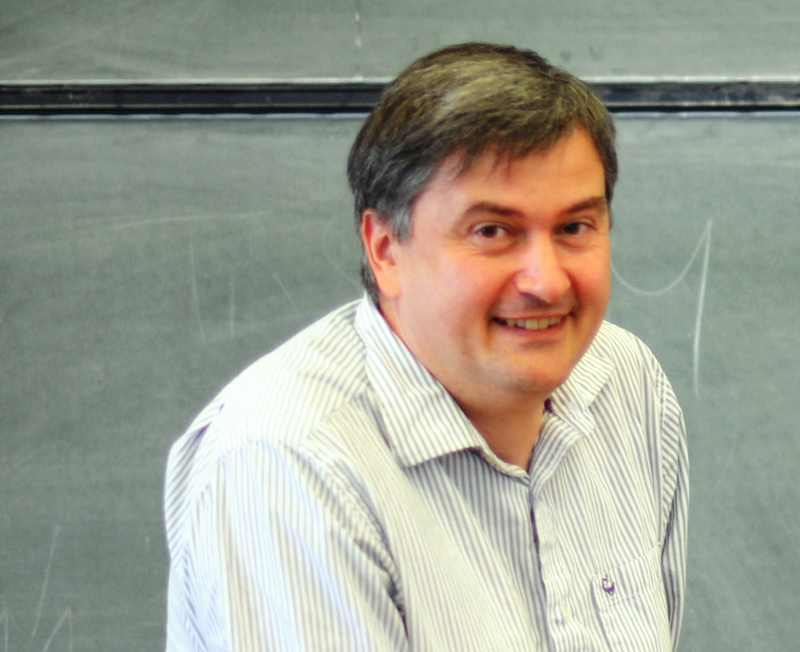Shedding light on the Universe's deepest secrets
02 April 2013
Looking back into the deepest recesses of time, into a Universe immeasurably different to the one we know today, has earned UCT's Professor Heribert Weigert an A-rating. He operates in a world of particle accelerators, quantum-chromodynamics, finite temperature, non-equilibrium field theory and resummation of density effects in high-energy collisions. To which you might well respond, "Pardon?"
For the laypeople among us, Weigert's research centres on matter as it occurred in the early Universe, very shortly after the Big Bang, when the Universe was immensely hot - more than 100,000 times hotter than the centre of the Sun. "This state of matter, the quark gluon plasma, is recreated today at the most powerful particle accelerators we have - the Large Hadron Collider (LHC) at CERN in Switzerland, and the Relativistic Heavy Ion Collider (RHIC) at Brookhaven National Laboratory on Long Island near New York," says Weigert. He describes himself as a theoretical physicist and was one of the driving forces in the formulation of what is known today as the Color Glass Condensate, another extreme state of matter that sets the initial conditions in the accelerator experiments at CERN and BNL. "I came to UCT to join a growing group of both theorists and experimentalists directly involved in this massive international effort to uncover the deepest secrets of our Universe," Weigert says. "To hint at the tremendous opportunities the existence of such a lively group opens up for young South African students and scientists, I need only point out that our group of likeminded researchers here at UCT is already about to organise the third international conference in a row in this field."
He says he feels honoured by the recognition of his scientific efforts that the A-rating brings. "My immediate goals focus on nurturing and expanding our research group at UCT and its ties to the national and international scientific community - it belongs on the map of major centres of international particle physics." Weigert's background in theoretical physics focuses on problems in quantum chromodynamics, the theory of strong interactions between particles, and their application to modern collider experiments. He has considerable international experience - having conducted research in Germany, the US, the UK and Denmark - and obtained his Habilitation at the University of Regensburg.
In addition, he spent a semester as a visiting full professor in Bielefeld, Germany, and served as a research associate professor at the University of Oulu, Finland for three years. Since April 2011, he has been an associate professor in the Department of Physics at UCT, and in September 2011 he became director of the university's Centre of Theoretical and Mathematical Physics (CTMP). Weigert says he was drawn to physics while still in high school, and has always loved popular science books. "I still grab hold of all archaeological material that comes my way."
He has tracked Celtic and ancient Roman sites all over Bavaria and says that, for him, physics is linked to "heroes" like Einstein, Heisenberg, Bohr and Feynman, who introduced him to a unique intellectual adventure. "You want to be right in it, instead of seeing it happen to somebody else in a faraway place."
Talking about faraway places, Weigert plans to continue navigating the labyrinthine ways of the early Universe, in his quest to shed new light on its origins and, hopefully, take a calculated step towards answering the greatest question of them all: Why are we here, and how did it all begin?
 This work is licensed under a Creative Commons Attribution-NoDerivatives 4.0 International License.
This work is licensed under a Creative Commons Attribution-NoDerivatives 4.0 International License.
Please view the republishing articles page for more information.









